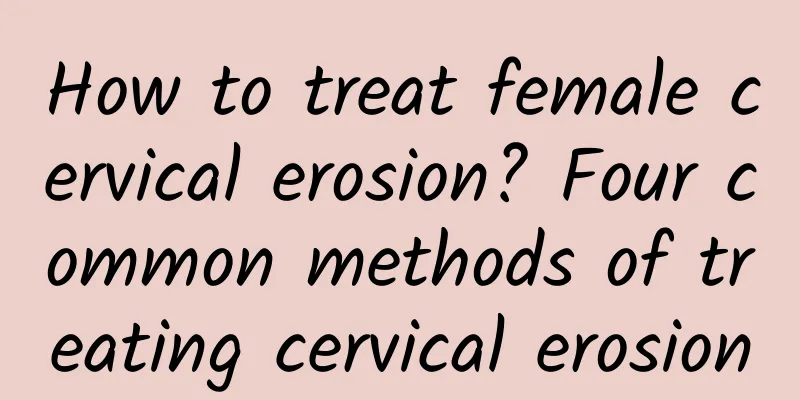What causes uterine cysts?

|
Uterine cysts may be caused by a combination of genetics, environmental factors, physiological abnormalities, and pathological diseases. Identifying the cause will help to take timely treatment measures to avoid worsening of the disease. 1. Genetic factors: Uterine cysts may be related to family heredity. Some women have a history of similar diseases in their family, which indicates that physical susceptibility may lead to cyst formation. Regular physical examinations, especially for women with a family history, should be vigilant to detect potential problems early. 2 Environmental factors: Long-term exposure to chemicals such as plasticizers, smoking or living in a polluted environment may increase the risk of uterine cysts. In addition, bad living habits such as staying up late and irregular diet can also cause imbalance in body hormone levels. It is recommended to avoid exposure to harmful environmental stimuli and develop the habit of regular sleep and healthy diet. 3 Physiological factors: Hormonal fluctuations in the body, especially high levels of estrogen, can cause uterine cysts to form. This is often related to puberty, pregnancy, or menopause. Controlling your weight, avoiding chronic stress, and using hormone medications regularly can help maintain a balanced hormone balance in the body. 4 Pathological factors: Certain diseases such as endometriosis, uterine fibroids or chronic pelvic inflammatory disease can induce cysts. These pathological changes may cause local inflammation and tissue hyperplasia, promoting cyst formation. Treatment options include drug control such as nonsteroidal anti-inflammatory drugs, hormone therapy such as oral contraceptives, and surgical treatment such as cyst removal surgery or laparoscopic minimally invasive surgery. The specific plan needs to be decided by the doctor based on individual circumstances. Uterine cysts are often the result of a combination of factors. It is recommended to see a doctor as soon as possible when symptoms occur and follow the doctor's advice to undergo necessary examinations and treatments, such as color Doppler ultrasound or hormone level testing. At the same time, maintaining a healthy lifestyle can also help prevent and reduce the risk of recurrence. |
<<: What supplements are effective for functional uterine bleeding?
>>: Is corpus luteum cyst common in early pregnancy? Will it cause miscarriage?
Recommend
What can't you eat with uterine fibroids? Can patients with uterine fibroids eat hot pot?
What can't you eat with uterine fibroids? Exp...
Eat happily all the way to a good figure, 6 female stars control weight lazy package to tell you
If you want to be thin and beautiful, in addition...
How much does it cost to have a painless abortion?
How much does it cost to have a painless abortion...
Get rid of fat thigh meat and lift your buttocks with 5 elastic bands
Girls' fat thighs will be exposed as soon as ...
Is it better to have an abortion or a medical abortion?
Artificial abortion refers to artificial abortion...
What are the hazards of severe cervical erosion?
Everyone wants to have a healthy body, but there ...
Menstrual period is an important period for the onset of pelvic inflammatory disease
Through understanding the causes of pelvic inflam...
Losing weight and dieting, menstruation has stopped ~ Wu Mingzhu: Qi deficiency and phlegm dampness type obesity is easy to occur, Siwu Decoction is used for conditioning
In order to lose weight, people will try every po...
There are several types of endometrial tuberculosis in women.
What are the types of endometrial tuberculosis in...
Don’t eat rice or bread to lose weight ~ The result of “sugar-restricted diet” is myocardial infarction!
People who want to get rid of obesity and lose we...
Experts reveal why vaginitis is prone to recurrence
In life, many women will find that vaginitis recu...
What are the methods for diagnosing ectopic pregnancy?
What are the methods for diagnosing ectopic pregn...
What are the types of pelvic inflammatory disease?
The onset of pelvic inflammatory disease is relat...
Two good treatments for adnexitis
The incidence of adnexitis is generally very high...
Causes of incomplete uterine aspiration during abortion
Artificial abortion, also known as artificial abo...









